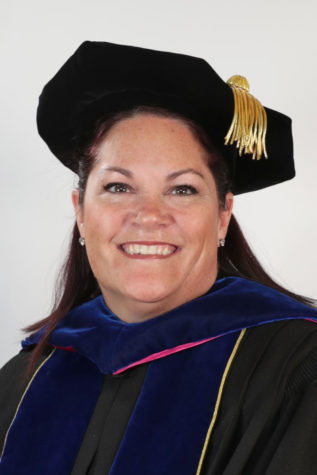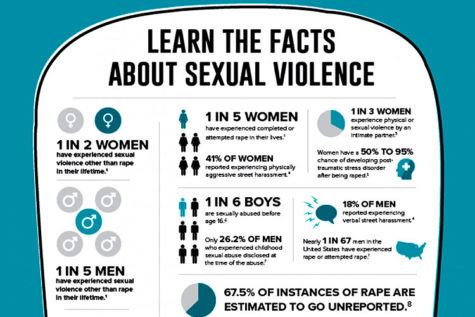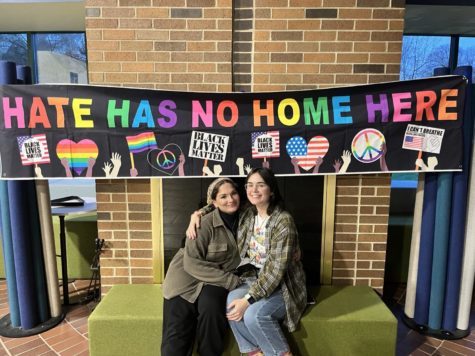Competitive intelligence club “targets” students with an alumni presentation
December 3, 2019
The Mercyhurst Competitive Intelligence Club (MCIC) is looking to improve students’ abilities to land interviews and jobs.
One such effort is through hosting guest speakers, which was the case for the club’s Nov. 11 meeting when ‘11 alumni Lindy Smart and ‘19 alumni Tom King appeared via Skype to talk to students.
“I wanted students to take away advice that was tangible and applicable to them,” Krista Cousins, senior Business Competitive Intelligence major said.
“I wanted them to hear advice and tips from two past students who found success after being in their shoes not long ago.”
Cousins noted that King had reached out about doing a presentation to the club, and the two of them worked together to set up the presentation’s time and place. Smart and King are both members of Target Corporation’s Strategic Intelligence team, with Smart working as Team Lead and King holding the Senior Consultant position.
The main focus of Smart and King’s presentation was describing their jobs at Target, and how to translate the work that students do in their Intelligence and Business Competitive Intelligence majors into professional opportunities.
While there aren’t many occasions where the presenters found themselves writing analytical reports like they did at Mercyhurst, they stressed translating that experience and those skills into the communications that King and Smart have with the decision makers they report to at Target.
Being able to build from assignments, such as the fabled “Crisis Week” were recommended by Smart and King.
Connecting with professors and with those inside organizations students are interested in, whether through LinkedIn or other forms of contact was emphasized. “The hardest thing is getting your foot in the door,” Smart said.
“It’s hard to do on your own, especially with the automation of the HR process. Leverage the people out there that want to help you, it’s really up to you to put yourself out there.”
Soft skills such as presenting were also highlighted. “A lot of professionals in practice haven’t developed nearly as much as you all have,” King said.
For those interested in doing intelligence in a business environment, being able to understand financial numbers is key to being successful.
“For retail it’s store comparable sales, it’s revenue growth, digital growth,” Smart said, speaking of her experience at Target.
“Probably one of the easiest ways to learn this is earnings calls, or to read recaps. You’ll start to get a good sense of what’s important for that industry. Especially if you want to work in a strategy function, where they partner so heavily with finance to move the company forward for growth.”
Being able to work on a team and empathizing with people were also listed as important, because unlike group projects for classes, the teams do not change from project to project.
“You will have to work with these people over and over again,” Smart said.
“They may actually become your boss someday.”
An interesting note for students attending the presentation was the importance of the self-advocation of one’s skills or abilities as an intelligence analyst. Smart reminisced to the room on how she advocated the creation of an intelligence team to the decision makers at Target over the course of five years, having first started with Target in their fraud department.
The presenters also emphasized working in the private sector even if students are primarily interested in national security, law enforcement, or cyber matters. Smart gave the example of their company, Target.
Target, a Fortune 500 company, has its own law enforcement agency through their corporate security, works with national security agencies to consider major events such as, Super Bowl, executive transport, extreme weather events and for cyber, Target has a world class facility on its headquarter’s campus.
“In the private sector there is probably greater room for advancement,” Smart said. “Probably better compensation.
Private sector work often provides more opportunities for professional development with bringing in speakers, and maybe some better flexibility in the work space, whether its working remotely or working in different parts of the office you prefer,” Smart said.
In lieu of this presentation, the leadership of MCIC will provide further events for students to attend later in the year, as well as opportunities to attend the annual Strategic and Competitive Intelligence Professionals (SCIP) Intellicon convention.
SCIP’s annual convention has been well attended by Mercyhurst Intelligence students in the past looking to network and learn from industry professionals.
“The SCIP Mercyhurst club will have additional events throughout the Spring,” said Professor Leslie Guelcher, MCIC’s club advisor.
“In addition, the club coordinates with SCIP to provide volunteers for the annual meeting that is the week after finals in Chicago. The volunteers are able to attend the conference for free, though they have to pay for transportation and lodging.”







